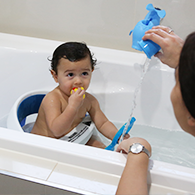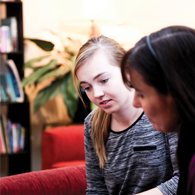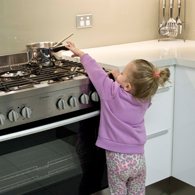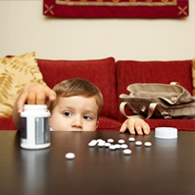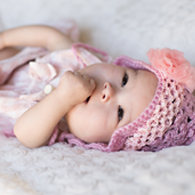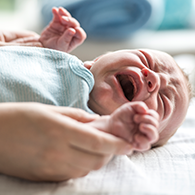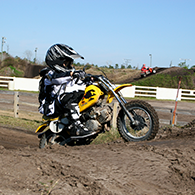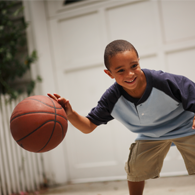Crying baby
Crying is a normal part of your baby’s development. It is how your baby lets you know that something is upsetting them and that they need you.
- Babies can cry up to 5 hours a day, but still be healthy and well
- On average babies cry the most around 6 weeks old
- Babies tend to cry more in the late afternoon and evening
- After about 4 months old most babies become more settled.
Remember all babies are different. Some babies can cry for more than 5 hours. Sometimes you may not know why your baby is crying and you might not be able to use the same ways to calm your baby.
Listening to a crying baby for hours can be stressful and some parents or carers can get frustrated or upset by their baby’s crying. Even in these times, parents should never shake their baby.
How to cope with a crying baby
If your baby just won’t stop crying, try:
- Another feed – your baby may still be hungry or thirsty
- Checking if your baby needs a nappy change
- Giving your baby a dummy
- Singing or talking to your baby
- Gently rubbing or massaging your baby
- Taking your baby for a walk in the fresh air
- Wrapping your baby in a small soft sheet so they feel secure
- Settling your baby in a dark and quiet place
- If you are feeling calm, rock your baby close to your chest so your baby can feel your heart beating.
You may feel helpless when your baby keeps on crying. Remember that you can’t always stop the crying but you can still comfort your baby.
Tired signs
It is a lot harder to get an overtired baby to sleep. Look for tired signs to make it easier to calm your baby for sleep:
- Glazed eyes and staring into space
- Clenched fists
- Jerky movements
- Yawning
- Becoming overactive
- Rubbing eyes
- Turning their head away
Late tired signs include:
- Grizzling or crying
- Difficulty getting to sleep
- Restless sleep
- Sleeping for short periods of time
A crying baby can be stressful. It’s ok to walk away if you need a break. Leave your child in a safe place and ask for help if you need it.
Never shake your baby. This can cause permanent damage to their developing brain; called Shaken Baby Syndrome or Abusive Head Trauma.
Injuries caused by shaking don’t happen accidentally during normal play. Shaking your baby can result in blindness, deafness, seizures and brain damage – all of which can lead to learning and behavioural difficulties, or death.
If you are finding it difficult to cope, or find that you are not enjoying being a parent, ask for help and advice by contacting:
- Your child and family health nurse
- Health Direct (1800 022 222), healthdirect.gov.au
- Tresillian (1800 637 357), tresillian.org.au
- Karitane (1800 677 961), karitane.com.au
- PANDA (Perinatal Anxiety and Depression Australia) Helpline (1300 726 306), panda.org.au
- Your GP for help and advice
For more suggestions on how to care for a crying baby have a look at our Shaken Baby Prevention Project or see the Crying baby factsheet.

